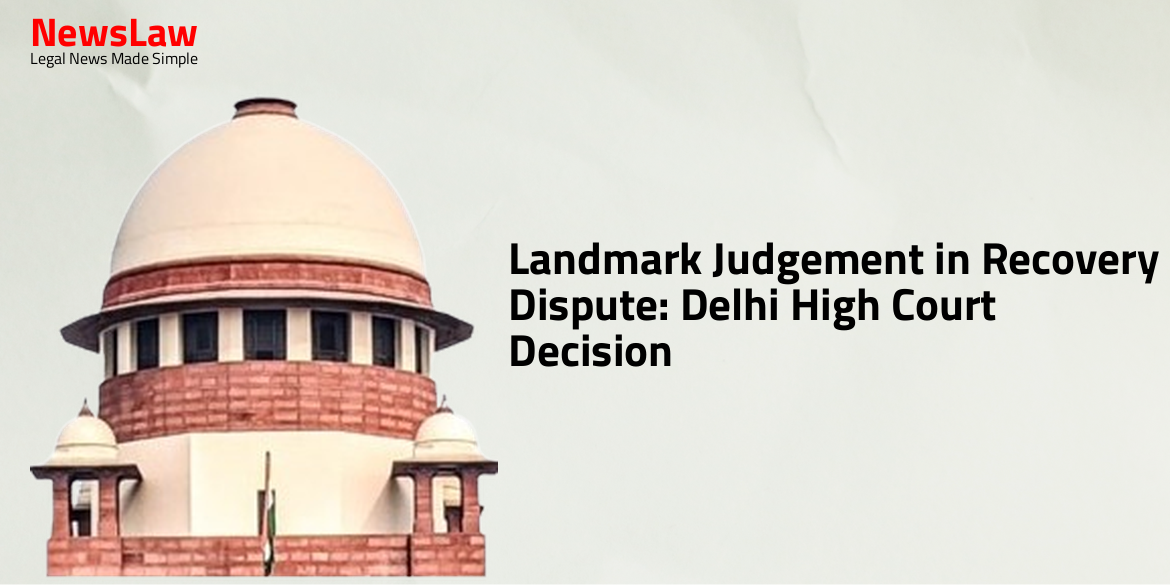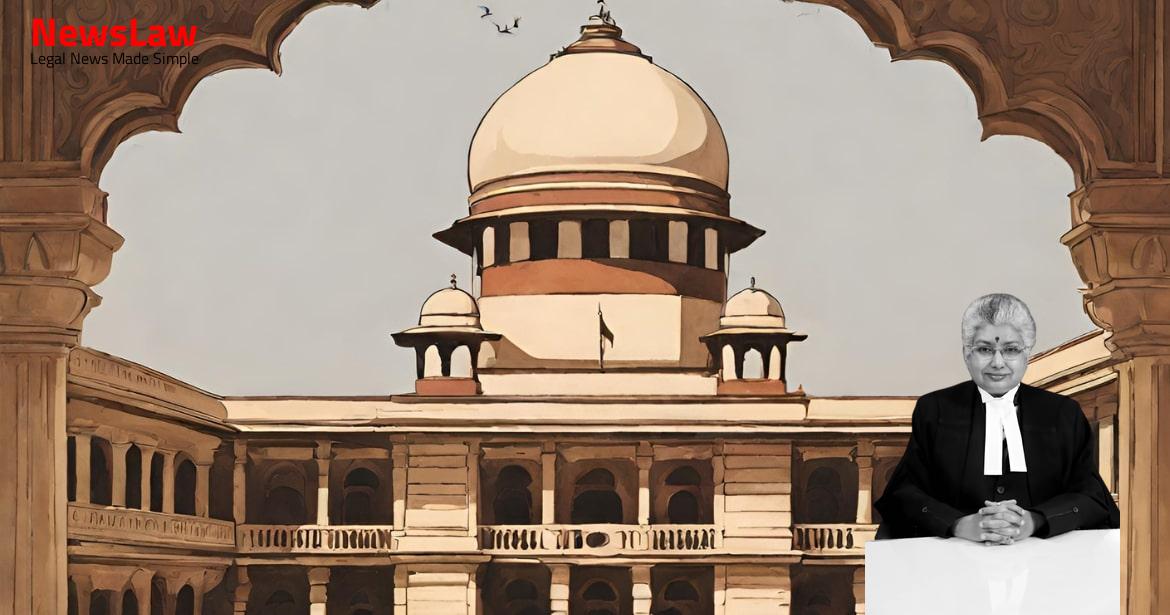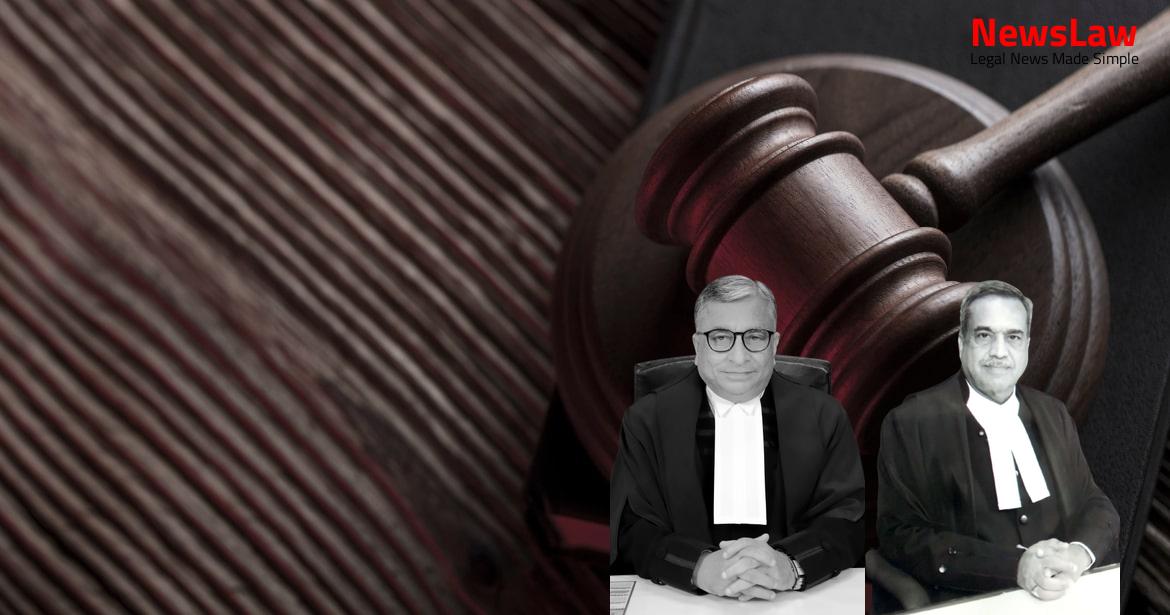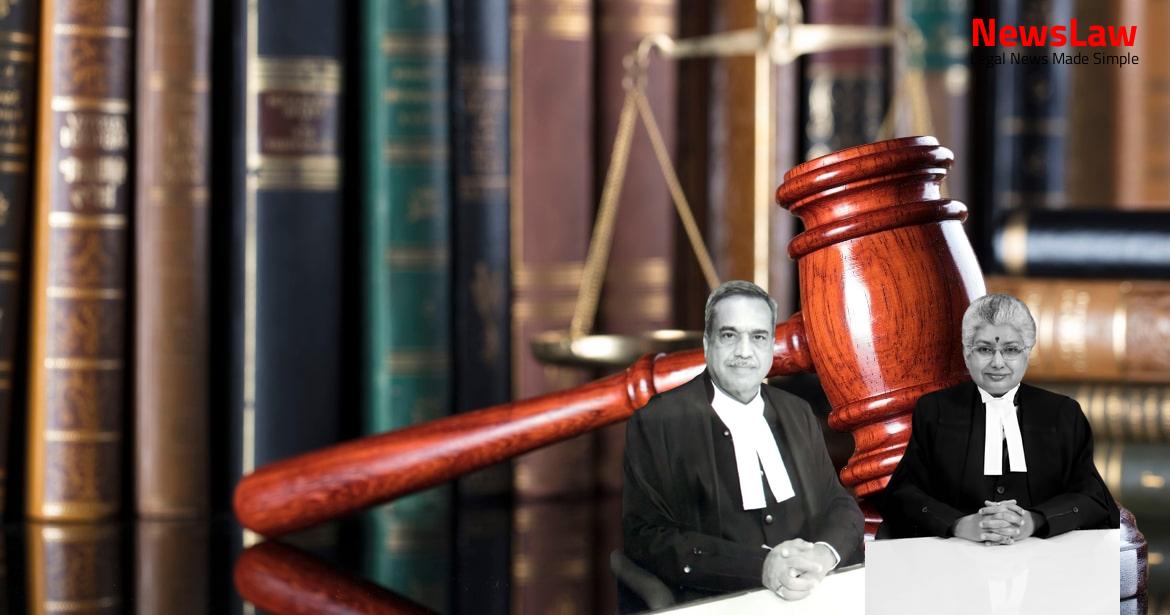In a significant legal development, the Delhi High Court delivered a landmark judgement in a recovery dispute case. The decision sheds light on crucial legal aspects and sets a precedent for future cases. Stay tuned to learn more about the key details of this case!
Facts
- The DRT dismissed the application under Section 17 of the SARFAESI Act filed by the Petitioner
- The DRT held that late Tajunissa willingly handed over original title deeds to Mr. Vishal Sharma, refuting the claim of misrepresentation
- It was concluded that late Tajunissa and her family members were aware of the mortgage transaction with the bank and participated in it
- The DRT found that late Tajunissa’s son-in-law, Mr. Abdul Samad, who was a Director in Affinity, also mortgaged his property with the bank
- The DRT dismissed the petition and rejected the claim that the mortgage over the subject property was created fraudulently
- The SPA was executed by late Tajunissa in favor of the Petitioner, witnessed by Mr. Nasir Hussain and Ms. Naseem Bano.
- Original of the SPA showed no indications of being executed on fresh paper.
- Execution of the renewal documents in 2018 was a conscious and voluntary act of Late Tajunissa and Ms. Naseem Bano.
- Execution of the initial mortgage in 2015 and its renewal in 2018 was with the consent and knowledge of late Tajunissa and her legal heirs.
- Notices under Section 13(2) and 13(4) of SARFAESI Act were issued to Late Tajunissa, who did not object.
- Mortgage renewal documents in 2018 were duly executed by Late Tajunissa by affixing her thumb impression.
- The applicants admitted that Ms. Naseem Bano and Late Tajunissa executed mortgage renewal documents in 2018 in the presence of Respondent Bank officials.
- Ms. Naseem Bano also executed mortgage renewal documents for the first floor of the property.
Arguments
- The Petitioner’s counsel argues that the DRT made an error in determining that the statutory notice under Section 13(4) of the SARFAESI Act was served on late Tajunissa during her lifetime.
- Respondent Bank’s counsel argues that the writ petition is not maintainable due to the availability of an alternate remedy of appeal.
- He asserts that the grounds raised in the petition challenge the factual findings of DRT, which cannot be disputed in a writ petition.
- The counsel mentions that this is the 26th round of litigation initiated by the legal heirs of Late Tajunissa against the Respondent Bank.
- He disputes the claim that the writ petition was filed by only one of the original applicants, implying the intent to interfere in the recovery process at a later stage.
- The counsel argues that the alleged finding of interference by other applicants is not supported by the evidence in the record.
Analysis
- The High Court should not entertain a petition under Article 226 if an effective remedy is available to the aggrieved person, especially in matters involving recovery of taxes, public money, or dues of banks.
- Challenging findings of fact should be done before the appropriate appellate forum like DRAT, not in writ proceedings.
- Violation of natural justice was not proven in the case, and the procedures under Section 13 of the SARFAESI Act were followed.
- The High Court has wide powers under Article 226 but must exercise self-restraint and consider available alternate remedies before entertaining a writ petition.
- Dismissed applications seeking reference to CFSL or opportunity to cross-examine are not violations of natural justice and can be challenged before the appellate forum.
- In commercial matters where efficacious alternative forums exist, High Courts should refrain from interference through writ petitions.
- DRT’s findings on the validity of documents and mortgage creation are matters of fact to be decided by the appropriate tribunal.
- Ultimately, the tribunal has the authority to determine whether a violation is mandatory or discretionary.
- Powers under Article 226 of the Constitution of India are wide but should be used only in extraordinary circumstances, especially in commercial matters between a lender and a borrower with a specific redressal mechanism provided by the legislature.
- Borrowers approaching the Debt Recovery Appellate Tribunal (DRAT) cannot avoid complying with the statutory provision of pre-deposit.
- Statutory provisions should not be circumvented, and litigants cannot bypass the Tribunal’s requirements and use constitutional remedies as an alternative.
- High Courts should consider statutory remedies under DRT Act and S Act before exercising jurisdiction under Article 226.
- High Courts urged to exercise discretion cautiously in matters affecting banks’ rights to recover dues.
- The petitioner has an alternative remedy to challenge the judgment by approaching DRAT.
- Filing a writ petition to avoid pre-deposit condition at DRAT is not a reasonable basis for invoking writ jurisdiction.
Decision
- The Petitioner was aware that the writ petition was not maintainable
- The present writ petition has been dismissed
- Cost of Rs.15,000/- is payable to the Respondent Bank within two weeks
Case Title: ZAHID HUSSAIN Vs. KOTAK MAHINDRA BANK LTD. (2024:DHC:4065-DB)
Case Number: W.P.(C)-6899/2024



